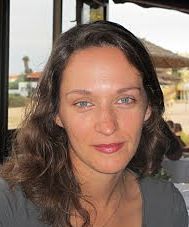239. Catarina Dutilh Novaes on Medieval Logic
Was medieval logic "formal"? Peter finds out from Catarina Dutilh Novaes.
Themes:
• C. Dutilh Novaes, Formalizing Medieval Logical Theories: Supposition, Obligationes and Consequentia (Berlin: 2007).
• C. Dutilh Novaes, “The Different Ways in which Logic is (Said to Be) Formal,” History and Philosophy of Logic 32 (2011), 303-32.
• C. Dutilh Novaes, “Lessons on Truth from Medieval Solutions to the Liar Paradox,” Philosophical Quarterly 61 (2011), 58-78.
• C. Dutilh Novaes, “Medieval Theories of Truth,” “Medieval Theories of Quantification,” and “Medieval Theories of Supposition,” in H. Lagerlund (ed.), Encyclopedia of Medieval Philosophy (Berlin: 2011).
• C. Dutilh Novaes, “Form and Matter in Later Latin Medieval Logic: the Cases of Suppositio and Consequentia,” Journal of the History of Philosophy 50 (2012), 339-64.
• C. Dutilh Novaes, “Reassessing Logical Hylomorphism and the Demarcation of Logical Constants,” Synthese 185 (2012), 387-410.
Her entry “Medieval theories of consequence” on the online Stanford Encyclopedia of Philosophy.







Comments
logical hylomorphism
A really enjoyable interview. I've found Prof. Dutilh Novaes' work on consequentiae and obligationes very helpful and interesting; now I can look forward to reading her work on logical hylomorphism as well. Thanks to you both!
a bit hard to follow
Thanks as always for these podcasts. This one was bit hard to follow, because the material was rather, well, "formal," and the delivery was very rapid. Dr. Novaes obviously knows her stuff, but I wish she could have broken things down a little more. I expect that in the book version it will be easier to follow.
In reply to a bit hard to follow by Nicholas Marinides
Hard (act) to follow
Yes, it is technical material. Just to clarify one thing, the interviews won't be in the book version, only the scripted episodes. So, you might want to just listen again and see if you follow better the second time around?
BARBARA
Puzzled by the statement at 22.07 that the schema BARBARA is "all A is B, all B is C, therefore all A is C" accompanied by the example "all cows are blue, all blue things are stones, therefore all cows are stone". This is not precise for in this schema (and example) the middle term is in the position of the 4th (Galenic) figure (the M is the P of the major and the S of the minor) and moreover, it concludes indirectly with the major term as the S of the conclusion (which holds only for modes of the First figure indirect none of which are AAA). Hence this schema and example do not correspond to any known mode and there is no medieval name for it. The schema BARBARA has the middle term as proper to the First figure (S of the major and P of the minor) and concludes directly (the minor term is the S of the conclusion). The given schema and example can, of course, be turned into BARBARA easily enough by a transposition of the major and the minor premises: "all blue things are stones, all cows are blue, therefore all cows are stones".
In reply to BARBARA by Michael Tavuzi
Barbara
I ran this past Catarina, who clarifies what is going on quite nicely I think:
Technically, the way Aristotle talks about syllogisms is often (though not always) with propositions of the form 'B belongs to (all/some/no) A'. So a Barbara syllogism would be:
Argument by calculation
Really enjoyed this episode. I would say that at least the beginnings of "argument by calculation" are found in the Ars Magna (and Ars Brevis) of the Medieval thinker Bl. Ramon Llull (1232-1316).
I would like to know more about him and would be grateful for any pointers.
Many thanks.
In reply to Argument by calculation by Fr. John Rickert
Llull
Glad you liked the episode! Maybe you didn't see that I covered Llull in a later episode of the podcast:
https://www.historyofphilosophy.net/llull-petrarch
Add new comment